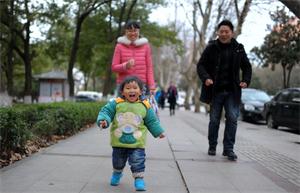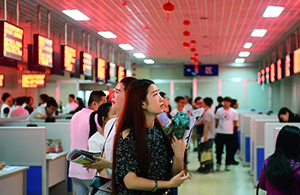Non-essential public service crucial and urgent for quality of life
(chinadaily.com.cn) Updated: 2013-01-24 21:36Now that Beijing's per capita GDP has surpassed $10,000, handling and improving non-essential public services are on the agenda in order to create a higher quality of life, says an article in Beijing News. Excerpts:
Non-essential public service refers to a set of emerging humanistic services including nursing the aged, caring for children, vocational training, health care and housekeeping, that directly affect people's quality of life, according to the Beijing Municipal Commission of Development and Reform.
Non-essential public service has been set as a new area of growth for the capital's service industry by the Government Work Report delivered to the 14th Beijing Municipal People's Congress, which opened on Jan 22. It's a positive response to people's concerns as the report assumes to establish government funding and social capital investment in these fields.
What the development of non-essential public service requires is institutional innovation, more convenient access, fewer regulations and an easing of government control, and more room for market forces, along with more government funding to compensate for past debts.
Take the issue of preschool education as an example. People are appealing louder to include preschool education into the compulsory education system, and complaining about the difficulty of finding kindergartens for their children. Though currently the municipal government does not have enough funding to make preschool education free for all, it can at least abolish limits to let those without the city's household registration have access to open a kindergarten.
The essence of a new pattern of urbanization must be humanistic. Beijing is expected to develop its non-essential public service as a national example.












